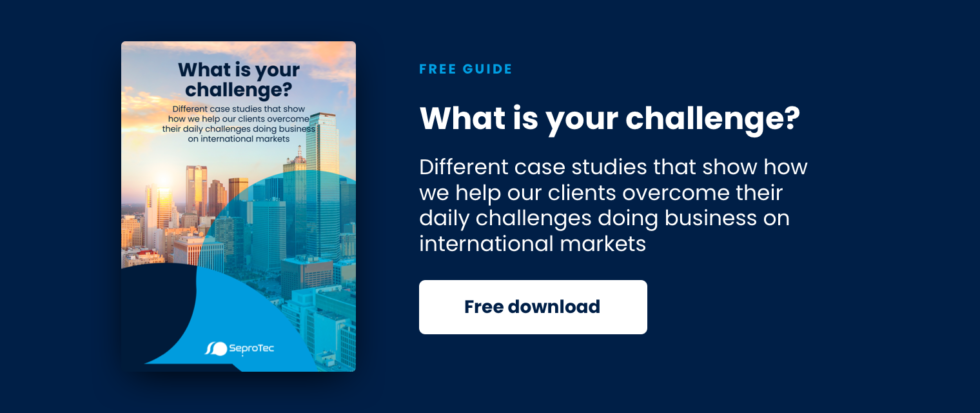
Ethics in AI Translation: the Questions Behind the Words
Artificial intelligence is no longer a future concept — it’s already transforming how we work, communicate, and make decisions. But with that transformation comes a growing responsibility: to use AI in ways that are accurate, inclusive, and ethically sound.
In the world of language services, AI has opened the door to translating large volumes of content at impressive speeds and scales. Yet as these tools become more embedded in business processes, many professionals are asking a fundamental question: Can we trust AI with the words that matter?
Because when it comes to translation, this isn’t just a technical issue, it’s a human one. Language carries nuance, emotion, and cultural weight. And while AI can process millions of words in seconds, it doesn’t truly understand any of them. Let’s explore why ethics in AI translation isn’t a future concern — it’s a present-day imperative.
When AI Sounds Right but Gets It Wrong
One of the biggest ethical challenges in AI translation and generative AI today is how natural the output can appear. Sentences flow. Grammar is polished. Tone feels professional. But that’s also where the risk lies. Because the more fluent the text sounds, the easier it is to miss that something’s off.
Take tone, for example. In American business English, messages are often framed using positivity: even criticism is softened or wrapped in encouragement. In contrast, communication styles in many European cultures are more direct and less emotionally framed. When AI applies the wrong tone, what was meant to be clear and professional can come across as vague, insincere or even condescending. Fluency alone isn’t enough. AI — no matter how advanced — can’t reliably understand cultural context, social norms or emotional nuance.
Bias and Cultural Blind Spots in AI Translation
AI systems learn from large datasets, and those datasets often reflect underlying biases. That means translation models can absorb and replicate gender stereotypes, cultural assumptions, and even discriminatory language.
Common issues include:
- Gender bias: Words like “doctor” might be translated with male pronouns, while “nurse” or “teacher” may default to female, reinforcing stereotypes without context.
- Cultural assumptions: Terms related to religion, identity or family structures may be translated in ways that favor one worldview over others.
- Underrepresentation of certain languages or dialects: AI often performs poorly with low-resource languages or regional variants, leading to poorer quality and less inclusive communication.
These aren’t just linguistic quirks — they affect how people are perceived and included, and they can harm your brand’s image if not properly addressed.
Data Privacy and AI: What Happens to Your Words?
Another ethical concern is how data is handled. Many AI platforms — especially free or general-purpose tools — store user input to improve their systems. But in a business context, that data might include internal strategies, product documentation or client contracts.
It’s worth asking:
- Where is that data stored?
- Who can access it?
- Is it reused to train future models?
This is especially important under European privacy laws like GDPR, and now even more so with the introduction of the EU Artificial Intelligence Act.
The EU AI Act: A Shift Toward Accountable AI
The European Union recently introduced the AI Act (Regulation (EU) 2024/1689) the first comprehensive legal framework of its kind aimed at ensuring that AI technologies are used safely, transparently, and respecting fundamental rights.
For businesses using AI-powered tools, including language solutions, the regulation sends a clear sign: ethical responsibility is no longer optional. It must be built into the design and deployment of AI systems from the start.
The act’s priorities include:
- Transparency in how AI systems work and how their output is generated
- Data governance to ensure AI models are trained with relevant, representative, and unbiased datasets
- Human oversight to ensure AI doesn’t replace human judgment where it really matters
- Security and privacy to protect sensitive information throughout the AI lifecycle
These principles have direct relevance in the world of AI translation, especially when content is sensitive, regulated or culturally nuanced.
Why Human Expertise Still Matters
The EU AI Act makes one thing crystal clear: human oversight isn’t optional, it’s essential. This isn’t just about ticking a compliance box; it’s about recognizing the limits of automation in contexts where meaning, intent, and cultural nuance matter.
AI translation can be an excellent tool, but it cannot replace human judgment. The most effective workflows combine AI’s speed and scale with human expertise that understands sector-specific language, adapts tone to different markets and ensures legal or technical accuracy. This hybrid approach doesn’t slow things down: it strengthens quality, protects your message, and cultivates your audience’s trust.
Questions to Ask Before You Translate with AI
If your organization is considering AI for translation, there are a few key questions to keep in mind.
- Will a person review the final translation?
- Can the translation engine be adapted with your terminology and tone?
- How is your data protected and stored?
- What measures are in place to detect and address bias or errors?
Asking these questions isn’t just about avoiding mistakes. It’s about making sure your message is respected, your audience understood, and your values upheld.
Seprotec’s Approach: Where Technology Meets Human Expertise
At Seprotec, we see AI as an opportunity, not an opportunity to replace human expertise, but to enhance it. We are convinced that technology will continue to help us design processes and workflows that are more efficient, scalable, and responsive to our clients’ needs.
With over 25 years of experience in language services, our approach combines the best of both worlds: advanced technology backed by human expertise. Whether you’re translating sensitive legal documents, launching a multilingual campaign, or localizing technical content across global markets, we ensure that every word reflects your standards, your tone, and your intent.
Because at Seprotec, technology is powerful, but people make it meaningful.
Want to see how ethical, secure, and scalable AI translation works in practice? Learn more about our AI-powered language solutions at seprotec.com/en/technology/ai-platform, or get in touch to request a live demo of Seprotec.ai in action.
There are no comments




Leave a comment